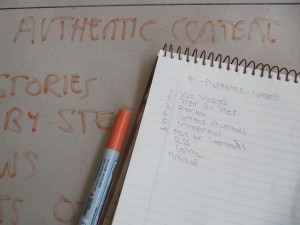 While I was walking towards the venue, I had two things in my mind :
While I was walking towards the venue, I had two things in my mind :
- What have I got myself into?
- Why have I not been to this part of Melbourne?
For a brief moment, the colourful clothes and salivation inducing food distracted me from the task at hand. Nervous Level: 90%
Once I reached the venue, I knew I had to put my serious face on. I did.
I went through the checklist in my head. Read up on topic: Check. Printed out Feedback forms: Check. Session partner arrived: Check. Nervous Level: 95%
I walked into the room with 4 Iranian families. Like children on their first day of school, each of them were smiling with the gleam of eagerness to learn in their eyes. Nervous Level: 65%
As the session proceeded through the ice breakers, the participants directed the course of the remainder of the session by asking questions. The didactic style of presentation that I had envisioned in my head became a Q&A style dialogue. This helped navigate the session towards the concepts that they were more confused with and that helped us, as facilitators, cater to their questions. Nervous Level: 45%
Having eye-contact with the participants and talking to them but having this tiny man translate our short sentences to them in Arabic was an interesting experience. A real life SBS movie of sorts. Nervous Level: 35%. Want to learn Arabic level: 70%.
At the end of the session they walked away, constantly thanking us for giving them this information. They were just like any other regular family who had moved to a new country in search of a safer environment for their children and in that process of integrating into the society, are looking for some advice on how they can go about doing so. That is all. Nervous Level: 15% (who am I kidding… I was always going to be a little nervous).
This was my first volunteering session for The Water Well Project. I cannot wait for the next one...
Here are three main steps that I took to prepare for my session
1. Email parties involved
Once you get an email confirming your participation in the session, there are 2 people you should email:
I. Your partner in the session:
- to find out what their background/ experience is (and thus the strengths between you)
- to understand if they have done a session in this topic; and perhaps find out what worked or did not work
- to meet earlier to discuss the content of the session and how you want it to run
II. The Case Worker/Person to contact from the organisation
- what are some of the key points that they would like to be addressed
- what is the outcome that they would like from the session
- what did they feel about past sessions on this topic: what worked/did not work
- a little summary about the participants (where they were from, do they have children, how much have they already been exposed to this topic etc. )
2. Prepare but don't over prepare!
- The content in the topic templates provided online on The Water Well Project website are a guide.
- There are few factors that you need to think about when approaching the task of preparing for this session
- although you are scheduled for 1-1.5 hrs, you will not be talking for the whole time- half the time will be spent on translation. Hence, a rough guide would be to prepare enough content for 45 mins
- it is also important to cater your session to the needs of the participants. For example, in a broad topic such as Child Development, one group might be more interested in the food and nutrition aspects of it while another group might be more interested in the discipline and general etiquette of the children. Hence, it is crucial that you walk into the session with flexibility. This is to ensure that the questions of the centre and participants are addressed as well.
- since English is an common obstacle among most of these sessions, cramming as much information as possible into that session is not going to be advantageous as the participants will have a hard time remembering what was actually discussed in the session. So ensure that you have around 3 main points for the participants to take home and work on. Provide them with tasks that they can follow up with the case workers to ensure that they are incorporating or making changes to certain aspects of their life
3. Relax
- Dress appropriately but not like someone who works in a corporate building.
- Bring sufficient coins for the parking meter
- Smile and enjoy yourself 🙂
Author: Ms Hemma Valluvan, Final Year Medical Student Volunteer
